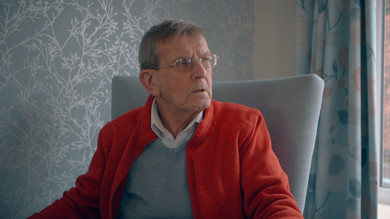Stroke Awareness Month is an international event which takes place in May. Several countries take part in raising awareness about strokes, and what may contribute towards having one.
A stroke is a life-threatening medical condition, which occurs when the blood supply to part of your brain is interrupted, reduced, or cut off. This prevents the brain tissue from receiving oxygen and the nutrients it needs. Brain cells begin to die within a matter of minutes. Taking early action can reduce brain damage, and other complications.
If you, or someone you are with is having a stroke, pay attention to the time that it began. Some treatment options are most effective soon after a stroke has begun.

There are several symptoms to having a stroke:
Communication – Someone who is having a stroke may have trouble understanding speech, they may slur their words when speaking, and experience confusion.
Paralysis, numbness of the face, arm, or leg – They may experience paralysis, weakness, or numbness. This usually affects one side of your body. They should try to raise both arms above their head at the same time. If one arm begins to fall, this is a sign that they may be having a stroke. Another clear sign is if one side of their mouth begins to droop.
Headache – Suddenly having a severe headache, followed by vomiting, dizziness, or problems staying conscious.
Vision – Blackened or blurred vision in one or both eyes and seeing double.
Trouble Walking – Stumbling or losing balance. Attempting to walk may also cause dizziness or loss of coordination.
If you see someone who you may suspect is having a stroke, ask them to carry out of these tasks, even if the symptoms have started and then disappeared. The following method is called the “FAST” activity:
Face – Ask the person to smile. Did their face droop?
Arms – Ask the person to raise their arms above their head. Did one arm begin to lower, or were they having trouble lifting one arm?
Speech – Ask the person to repeat a phrase. Did they slur in their speech or seem different?
Time – If you notice any of these symptoms, call the emergency services as soon as possible, and ask for help immediately.

A stroke may also contribute towards vascular dementia, which is the second most common type of dementia within the UK. Therefore, we would also like to raise awareness about dementia, in the hope that more people are diagnosed earlier on in their lives, allowing them to receive the care they need.
At BVS Training, we offer detailed video-based training DVDs including, Emergency First Aid & Dementia Care 1 & 2, which offer full supporting materials, and certification endorsed by Skills for Care.
Emergency First Aid for Care Workers: This video-based training course teaches many of the First Aid skills that a care worker will require. It covers common First Aid situations and includes a chapter about stroke awareness - £95!
Dementia Care 1 - Understanding Dementia: This video-based training course explains the physical condition of Dementia, and how it can affect a person. It also covers the stereotypes, and how it impacts the quality of care given - £95!
Dementia Care 2 - Person Centred Dementia Care: This video-based training course focuses on the person centred qualities that a skilled carer should reflect in their day-to-day work. It also shows how these values can improve a carer's ability to provide positive and supportive Dementia care - £95!
Dementia Care Bundle: You can buy both of these informative and detailed DVDs as a bundle at a discounted price of - £170!



